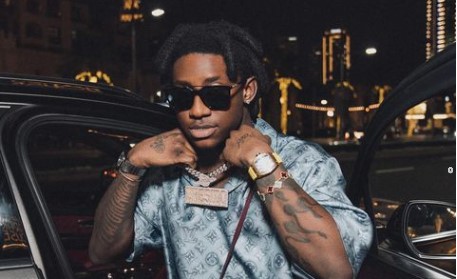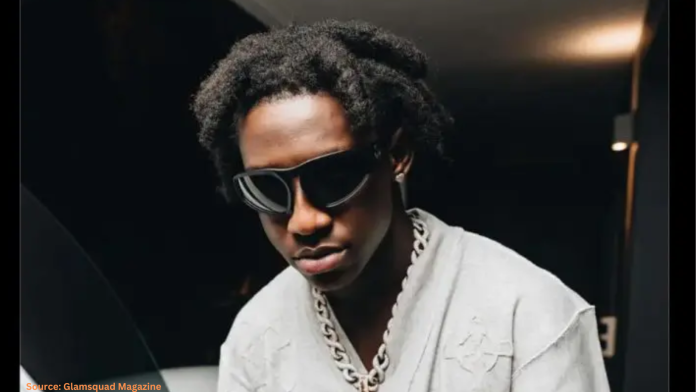- Shallipopi encourages artists to charge fair prices based on value, ensuring that fees reflect their actual market value and success.
- Pricing should be based on tangible metrics, such as streaming numbers.
- High fees are justifiable if supported by an artist’s achievements.
- The music industry is evolving, and artists need to adapt their pricing strategies accordingly.
Shallipopi, a Nigerian artist renowned for his distinctive style and captivating presence, recently offered insightful advice to fellow musicians on how to price their work.
In an interview with News Central TV, he highlighted the significance of setting rates that accurately reflect an artist’s value, especially within the Nigerian music scene.

This advice comes at a time when there’s an ongoing debate over the high fees charged by some Nigerian artists, with many arguing that these prices have excluded them from the local market.
Quick Facts
| Biography Details | Information |
| Name | Crown Uzama (Shallipopi) |
| Profession | Singer |
| Notable Works | “Shakespopi” album, various singles |
| Nationality | Nigerian |
| Genre | Afropop |
Also Read: Khaid Surprises Father with Brand New Toyota Highlander Gift
The Significance of Music Value and Pricing
Shallipopi pointed out that an artist’s worth is intrinsically linked to the success and reach of their music. He contended that artists achieving streaming figures similar to those of their American counterparts should also set their pricing accordingly.
This viewpoint questions the idea that Nigerian musicians are overpricing themselves, positing instead that fees should correlate with measurable success indicators.
He articulated,
“Your pricing is determined by your music’s reach; if your streams are on par with an American artist’s, your fees should reflect that. If not, you shouldn’t charge excessively.”
This assertion emphasizes the importance of evaluating one’s market standing before establishing rates.
The Role of Streaming in Valuation
The emergence of streaming services has revolutionized music consumption and monetization. Shallipopi’s recommendations demonstrate a grasp of this shifting landscape, where streaming statistics can greatly impact an artist’s market positioning and pricing tactics. He advises artists to base their fees on actual awareness and engagement levels instead of relying on exaggerated perceptions of their worth.

This method not only encourages equitable pricing but also motivates artists to hone their skills and marketing efforts to boost visibility and streaming numbers. In doing so, they can defend higher fees grounded in real performances.
Engaging with the High Fees Discussion
The controversy regarding elevated fees in the Nigerian music industry is complex. While it is true that some artists might charge too much, Shallipopi’s viewpoint opens the door for a more refined conversation. He asserts that artists should not hesitate to demand what they feel their work is worth, as long as their pricing is justified by their accomplishments in the field.
This position challenges the negative connotations associated with high fees, suggesting that if an artist can prove their value through the success of their music, they have every right to establish competitive prices. Such a perspective could empower artists to advocate for their own worth, potentially fostering a more sustainable industry framework.
Frequently Asked Questions
Q: Why does Shallipopi think artists should price their work according to its worth?
A: He believes that an artist’s true value is directly associated with the success and reach of their music, particularly regarding streaming statistics.
Q: What is Shallipopi’s view on pricing in comparison to American musicians?
A: He maintains that Nigerian artists with streaming numbers akin to those of American artists should charge similar fees.
Q: In what way does streaming influence an artist’s value?
A: Streaming figures act as a benchmark for an artist’s success and market appeal, shaping the reasonable fees they can charge for their work.
Also Read: Rich Homie Quan, Influential Rapper, Tragically Passes Away at 33



